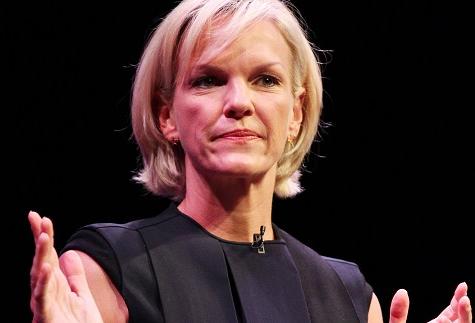
Elisabeth Murdoch
First published by Scottish Review, 28/08/2012
Three years ago, the biggest single threat to the future of the status quo of British broadcasting, and specifically the British Broadcasting Corporation, appeared to be James Murdoch. At the time most media commentators assumed Murdoch was entering the Second Act of his grand Shakespearian rise to global media dominance, which was why his anti-BBC, anti-establishment attack made so many headlines, and ensured that the annual MacTaggart Lecture remained the genuine centre-piece of the Media Guardian Edinburgh International Television Festival (MGEITF).
Post-phone hacking scandal, post-Leveson inquiry, James Murdoch’s insistence on profit being the only guarantee of media independence has lost its fool’s gold shine. Yet, while another Murdoch – James’ elder sister Elisabeth – grabbed nearly all the UK national headlines with her far more conciliatory 2012 MacTaggart Lecture, this doesn’t mean that the future of British broadcasting is now secure. If one participant at this year’s festival, Scotland’s first minister Alex Salmond, gets his way, then the BBC will be broken up within possibly the next five years, with any assets north of the border inherited by some as-yet-to-be-defined Scottish public service broadcaster.
While Salmond’s political opponents almost immediately leapt on his lack of detail about how any Scottish Broadcasting Corporation might operate, it’s interesting to note that few, if any, argued against the first minister’s assertion that – despite ‘welcome, overdue’ innovations such as digital channel BBC Alba – Scots were still being short-changed by a Westminster-controlled ‘broadcasting framework put in place more than half a century ago’ that had ‘not been substantially altered despite the huge changes brought about by political devolution and digital broadcasting’.
That Salmond was speaking on a stage at the MGEITF with representatives from STV and ITN (though not the BBC) is significant, not least because it was a relatively rare example of this annual media gathering actually paying some attention to what might be happening immediately outside its doors.
Two days earlier, Salmond had been making (at least local) headlines at the Edinburgh International Book Festival, on this occasion sharing the stage with the self-declared ‘English, not British’ writer Ian McEwan. Both Book and TV festival appearances were opportunities for Salmond to explain his vision of Scottish independence in a wider cultural and creative context, and both were in front of paying audiences. The difference was that, at least at the Book Festival, most of the audience were members of the general public.
Despite a history going back to 1976, despite regularly attracting many of the biggest names in British – indeed, world – media, despite being primarily about television, which is undeniably the most widely consumed communications medium in the western world, the MGEITF remains the most exclusive, the most self-selective so-called ‘festival’ taking place in Edinburgh. Notwithstanding the singular ‘public screening’ of new Doctor Who episodes, MGEITF remains an industry-only trade gathering which arrogantly and abhorrently dares to call itself an Edinburgh Festival.
Imagine a book festival that only allowed publishing professionals (and maybe authors) into Charlotte Square, or a film festival that kept film-lovers out of all its screenings. It just wouldn’t be on – if only for financial reasons. But the television industry has, deliberately or not, decided otherwise, and breaks away from its London home for an annual ‘jolly’ to Edinburgh. It says a lot about the goldfish bowl-aspect of the MGEITF that Guardian journalist John Plunkett, on hearing that former BBC One controller Lorraine Heggessey had opted to take in a show at the Assembly Rooms post MacTaggart Lecture, suggested that she’d opted for the ‘real world’.
It would be inequitable to suggest that the MGEITF doesn’t do what it does well; it does indeed offer the chance ‘to mingle with the great, the good and the emerging in TV and beyond’, and at times to get ‘to the heart of the thorny questions facing the industry’. But to become a delegate for the three days you need to pay up to £625 for a pass – and presumably suggest some connection with the television industry.
The founders of the original Edinburgh International Festival had great hopes for the cultural, social and tourism benefits to the city when they invited some of the world’s finest artists and companies to the Scottish capital; I can’t help but think they would be horrified that this television industry cuckoo – which openly announces on its website that its ‘both run by and for the television industry’ – has been allowed to prosper on the back of the Festival city.
Both overtly and subtly, broadcasting – be that television, radio, mobile or online – is a more significant shaper of our culture than cinema, literature or the many other forms of artistic expression found and celebrated in Edinburgh during August. That its participants clearly feel a need to keep even a small number of the great unwashed public out of its debates and discussions is a real concern – even if you’re not particularly keen to see the current status quo continue.